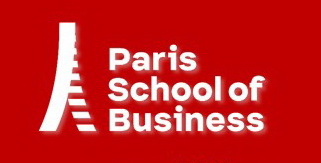Long description
New challenges arise when accommodating digital innovation; it characterizes either with the use of digital technologies during
the innovation process, or with the outcome of innovation (Nambisan et al 2017; Yoo & al, 2012). Digital innovation covers for instance big data,
extracting knowledge from data, machine learning, etc.
First, digital innovation changes how people work and use the technology. Digital economy features patterns of both dispersion and concentration
of knowledge (Grandadam et al., 2013; Howells, 2012). The volume of freelancers and start-ups increases; they develop their activities in new physical space
such as coworking spaces and fablabs. Large companies introduce new ways of working; they also downsize the office surface because numerous employees work
on the clients' premises or remotely. Thus implies also the development of new competences in the cognitive, functional and social domains that are all affected
by the introduction of digital technologies throughout the companies. A significant body of literature in management science investigates skills and profiles to
facilitate coordination, but these concepts are barely linked to the discussion of digital innovation: facilitators, gatekeepers (Tuschmann, 1990), boundary
spanners (Hsiao et al 2012). Teece (2014; 2016) discusses managerial capabilities and the importance of entrepreneurial skills but few investigations address
the competencies of other key players, especially in the context of digital innovation.
Second, digital innovation implies key organizational challenges in relation with the firm’s capacity to coordinate knowledge and resources between
large varieties of actors in different ecosystems. In the knowledge based approach, firms are supposed to coordinate specialized knowledge (Grant 2013). With
the digitalization of innovation, firms have to acquire a new capacity to rapidly articulate and rearticulate distant knowledge located inside and/or outside
their boundaries. In the dynamic capabilities perspective (Teece 2007), digital innovation requires the redesign of resources orchestration and, at the same time,
influences the ways how firms sense, seize and reconfigurate resources. Digitalization complexifies the management of creativity and innovation by expanding the
number of actors present in the process. It requires fluidity and an ability to experiment fast and early in the process (Yoo et al 2012). The management of
innovation in digitalization contexts remains however less stable than in traditional projects: technologies, goals, and stakeholders can change rapidly. People
do not work on fixed products and well-bounded questions (Nambisan et al, 2017). All these challenges draw the path towards organizational transformation as it
is described by Schreyogg et al (2010) and Hirschhorm and Gilmore (1992): firms need to develop organizational fluidity. They have to commit to boundaryless
organizational processes.
Third, digitalization in innovation also offers new opportunities to build links with external stakeholders and resources, which amplifies the
opportunities for open innovation (Nambisan et al, 2017). Established firms and startups install new business models, combining new knowledge and resources
made available by digital technologies (Yoo et al. 2012). Traditional sectoral frontiers blur (Nambisan et al, 2017). Digital platforms imply new way to
create and capture value (Teece, 2010). This also challenges the operational work due to disruptive work flow innovation.
We expect several types of contributions in order to appraise these transformations.
Questions/topics of interest include, but are not limited to the following:
- Organizational structure, ways of working and digital culture;
- Change of workplace and work practices to develop digital innovation;
- Transformation path in-between disruptive change and “gentle slopes”; x
- Emergence of new roles and tools to support resources orchestration and knowledge articulation in the context of digitalization;
- Critical competences to facilitate coordination and creativity for digital innovation;
- Knowledge diversity, creativity and digital innovation;
- Technological artefacts and boundary objects as tools of coordination to develop digital innovation;
- Dynamic capabilities, entrepreneurial and managerial capabilities in the context of digital economy;
- User centric approach, open innovation and digital innovation;
- New business models for large and small companies in the digital economy.


























